NestWatch Blog Posts
Blog
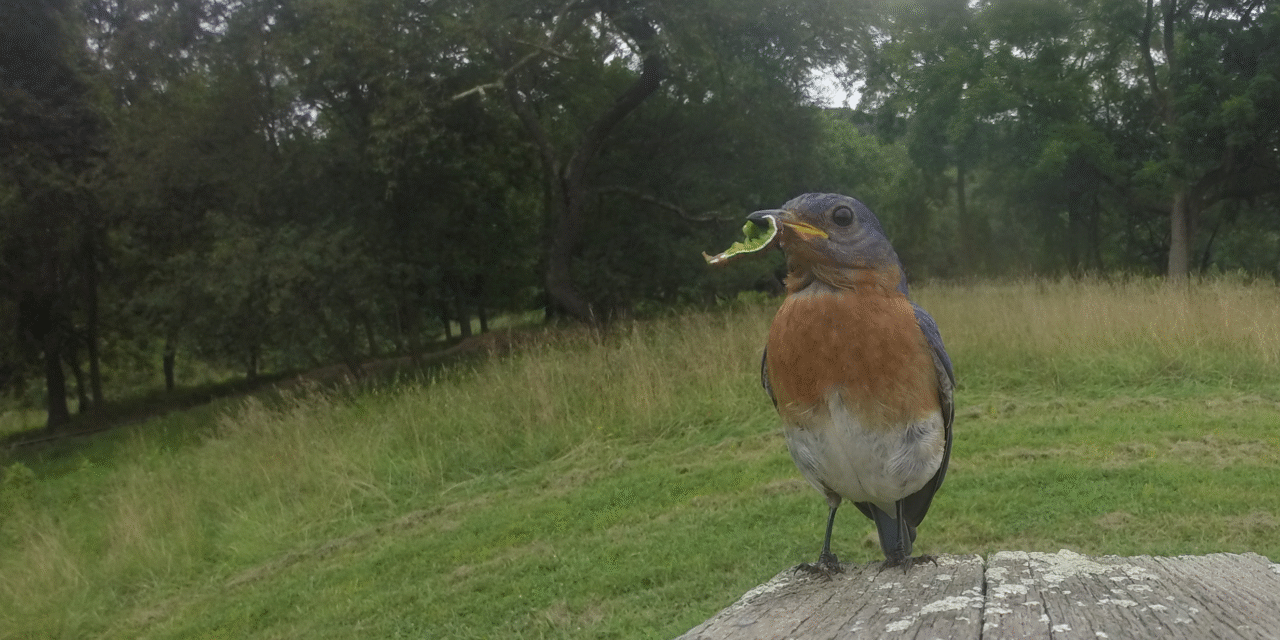 To Support Nesting Eastern Bluebirds, Plant Native
To Support Nesting Eastern Bluebirds, Plant NativeWhen it comes to feeding baby birds, some prey species are the ideal superfoods. That’s why Eastern Bluebirds feed caterpillars to their nestlings 40% of the time—they’re rich in protein, fats, and vitamins! But birds need our help to reverse insect declines and turn “food deserts” into “food oases.” Read on to learn how you can help bring back the insects…so birds can feed them to their young.
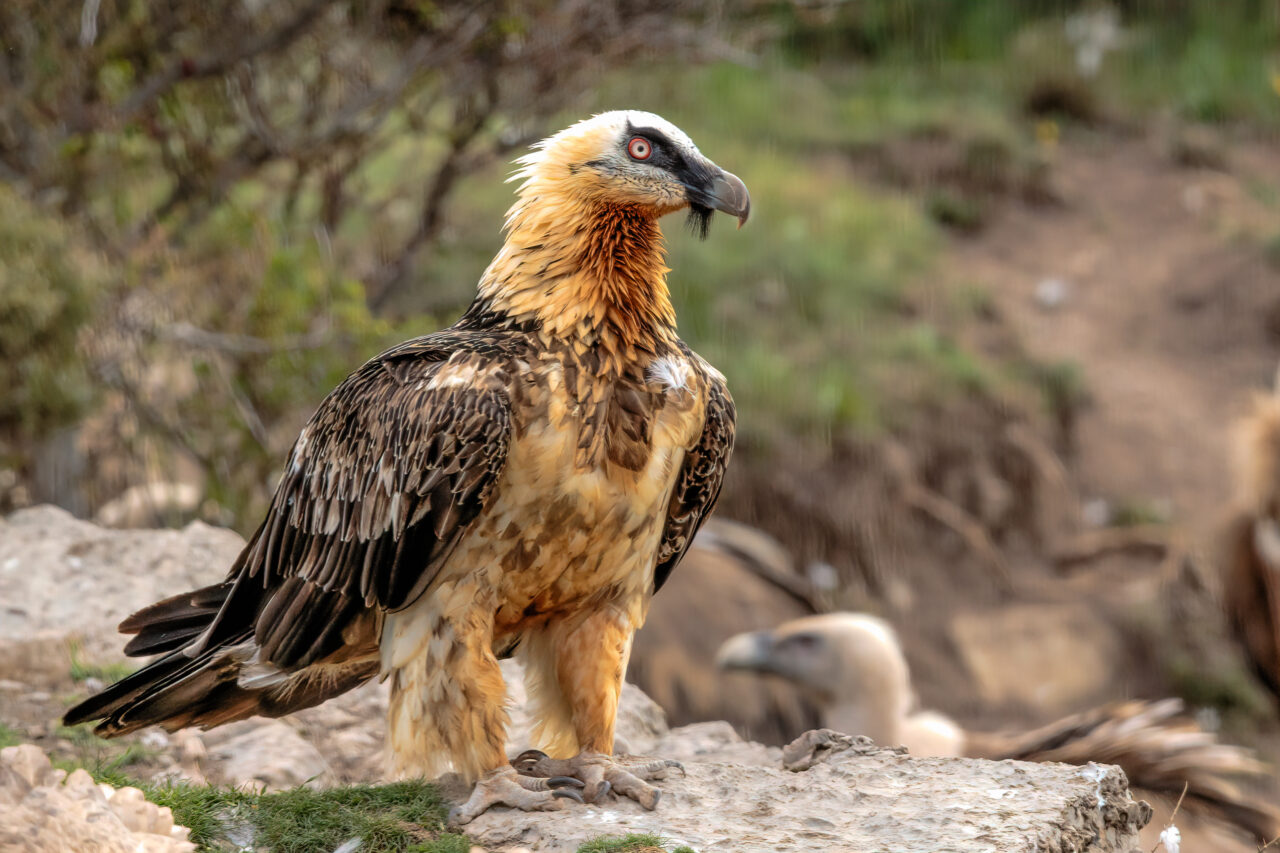 Old Nests Reveal Ancient Ecology
Old Nests Reveal Ancient EcologyBird nests come in all shapes and sizes, some lasting for a season, while others last years, decades, or even centuries! A recent study on Bearded Vultures takes a fascinating look into their ancient nests that are still in use and the items found within that helped researchers determine how long they’ve been present in the environment. These discoveries highlight a valuable insight into our biocultural history and how we can shape future conservation goals.
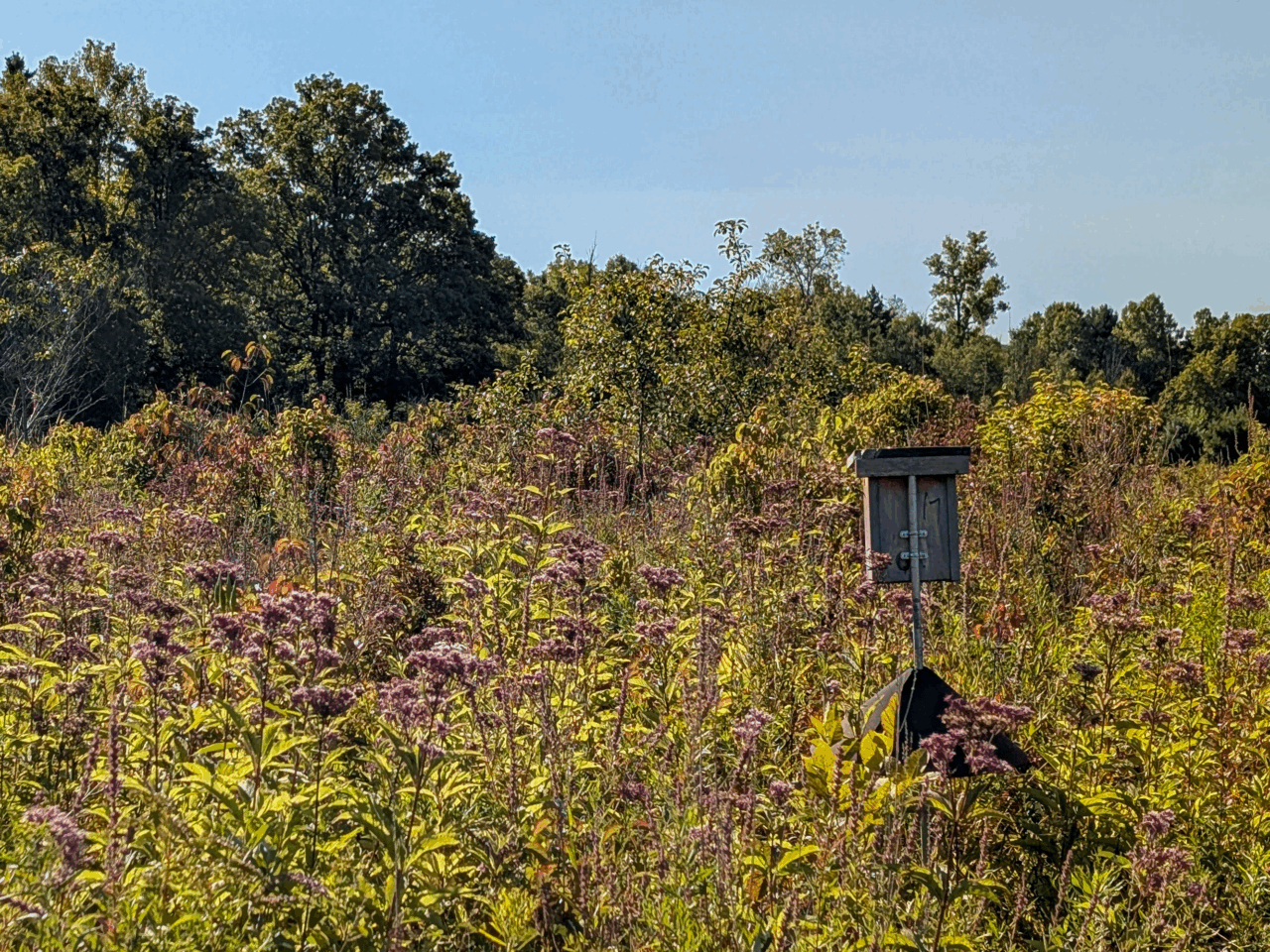 Fall Gardening for Spring Nesting
Fall Gardening for Spring NestingWhat can you do this fall to build better habitat for your nest box inhabitants? Plant native! Native plants are a boon for wildlife, especially birds; they’re a great source of food and shelter, and they provide ample nesting material during the breeding season. Our guest Mhairi McFarlane dives into several different activities you can do right now to help create ideal nesting space for your birds come springtime.
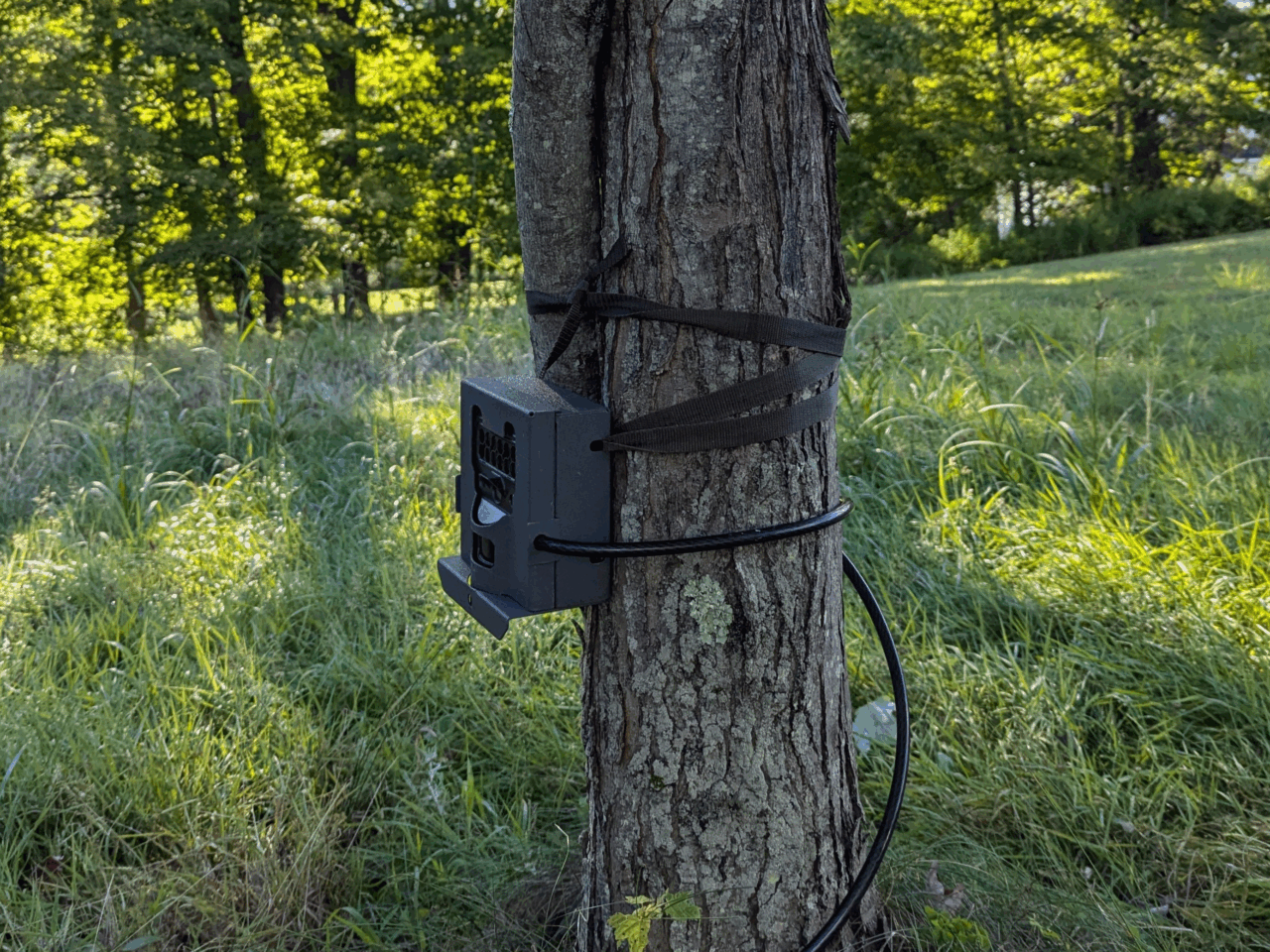 Using Trail Cameras to Enhance Nest Monitoring: Risks and Rewards
Using Trail Cameras to Enhance Nest Monitoring: Risks and RewardsTrail cameras are a fun and low-impact way to monitor bird nests and discover fascinating behaviors without disturbing the birds. With the right setup and a few safety considerations, you can collect great data while minimizing time in the field. It’s a great tool for NestWatchers who want a more intimate view of the nesting cycle.
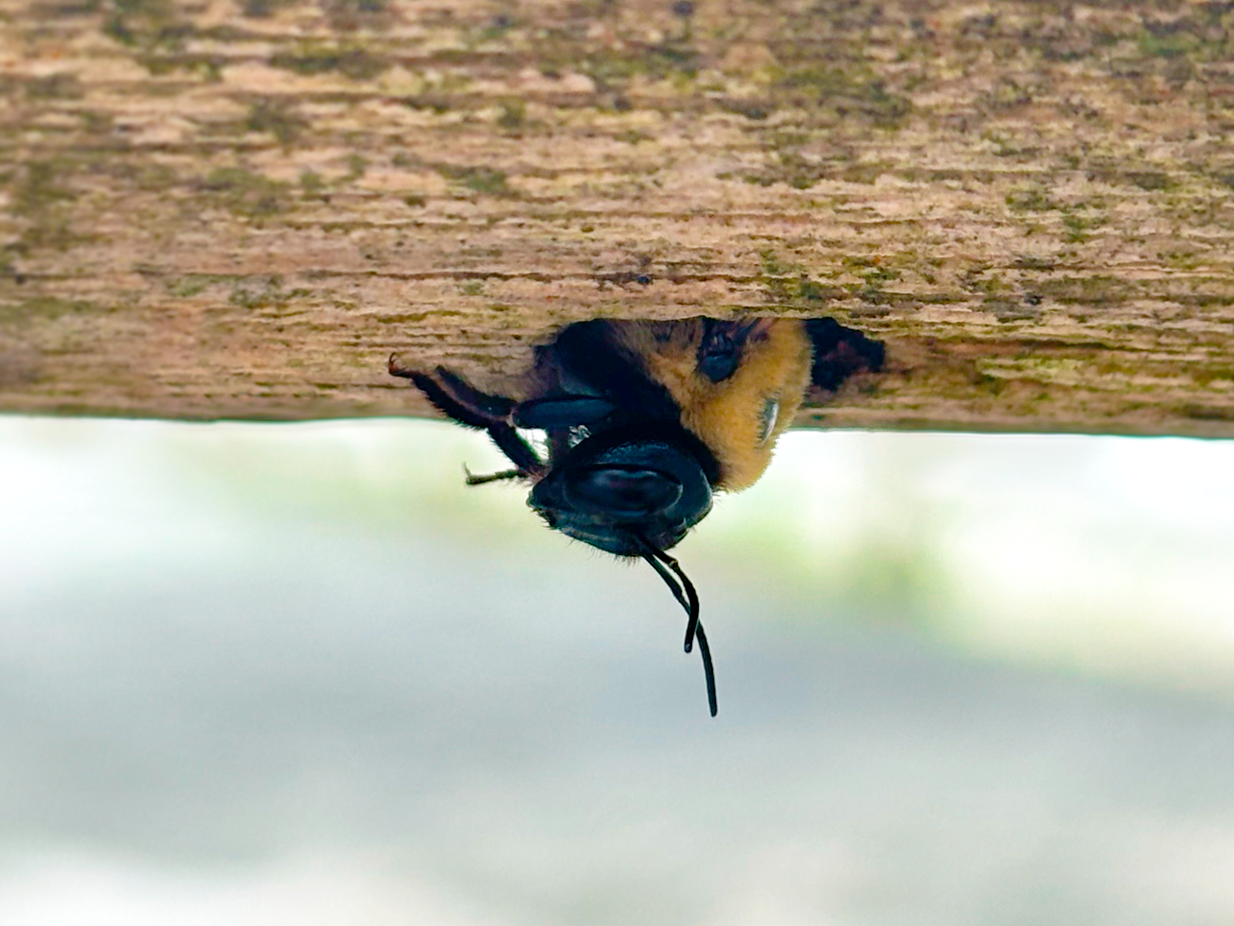 Are Carpenter Bees Damaging Your Nest Boxes?
Are Carpenter Bees Damaging Your Nest Boxes?Have you ever experienced mysterious, almost perfectly circular holes appearing in your nest boxes? If so, you might have other winged creatures trying to lay eggs in your nest box—carpenter bees! These pollinators have a habit of boring into wood to lay their eggs, which can damage nest boxes. We explore carpenter bee identification and habits, plus share some tips to prevent and repair the damage.
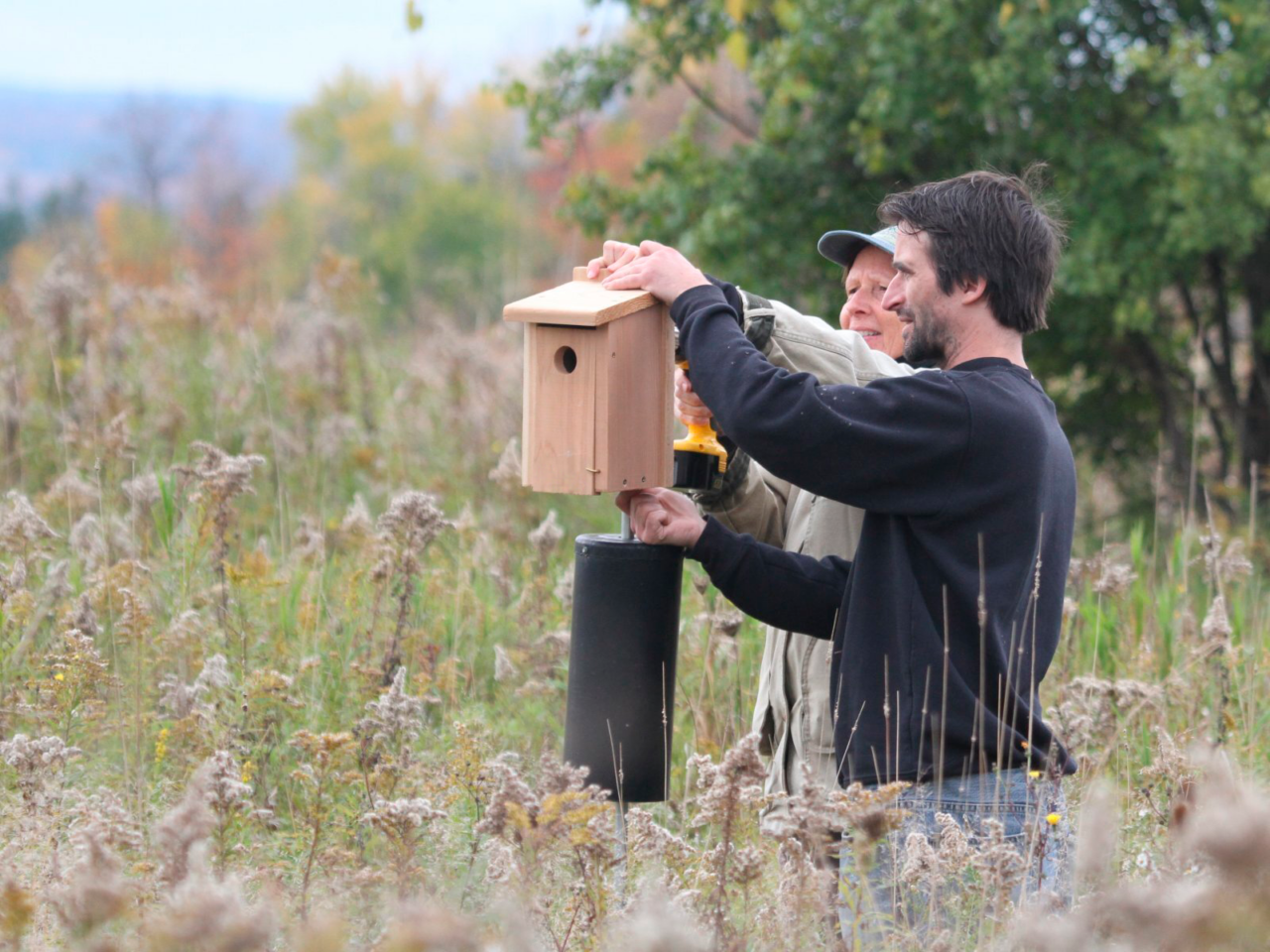 Coming Together for Birds: Scaling up conservation to the community level
Coming Together for Birds: Scaling up conservation to the community levelBuilding safe and healthy communities for both birds and people has never been more necessary, but it doesn’t happen by chance. It happens when we join forces to identify a need, pool resources to accomplish a goal, and communicate the successes—and challenges—with the broader community. Read our thoughts on how to scale up your NestWatching to the community level.
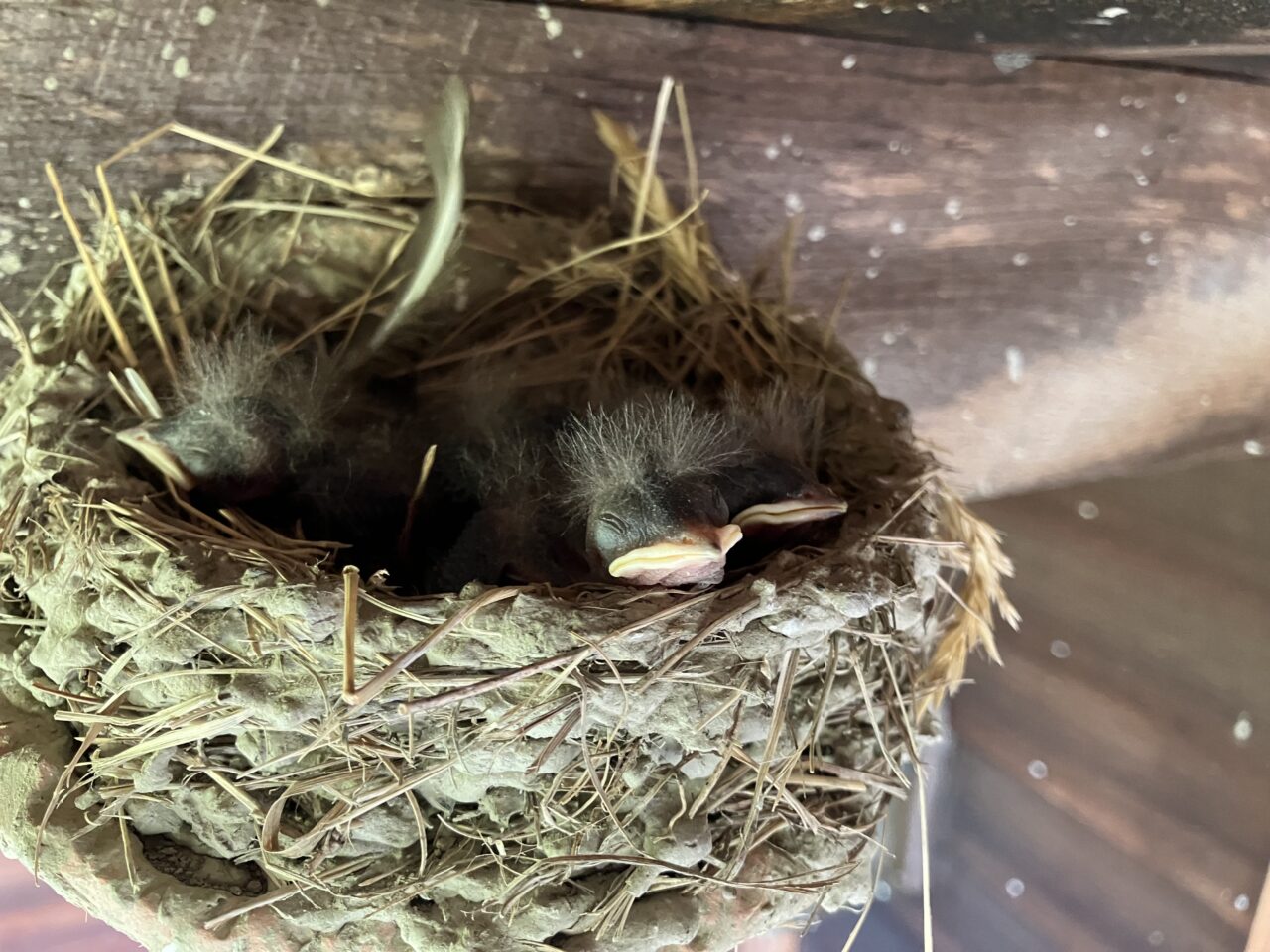 Making Space for Barn Swallows
Making Space for Barn SwallowsThe familiar Barn Swallow is an agile, active flier that nests in close association with humans. However, their numbers have been declining recently due to several factors. In this blog post, swallow conservationist Mara Silver shares some insights on how she helped resurrect a colony in a disused barn site.
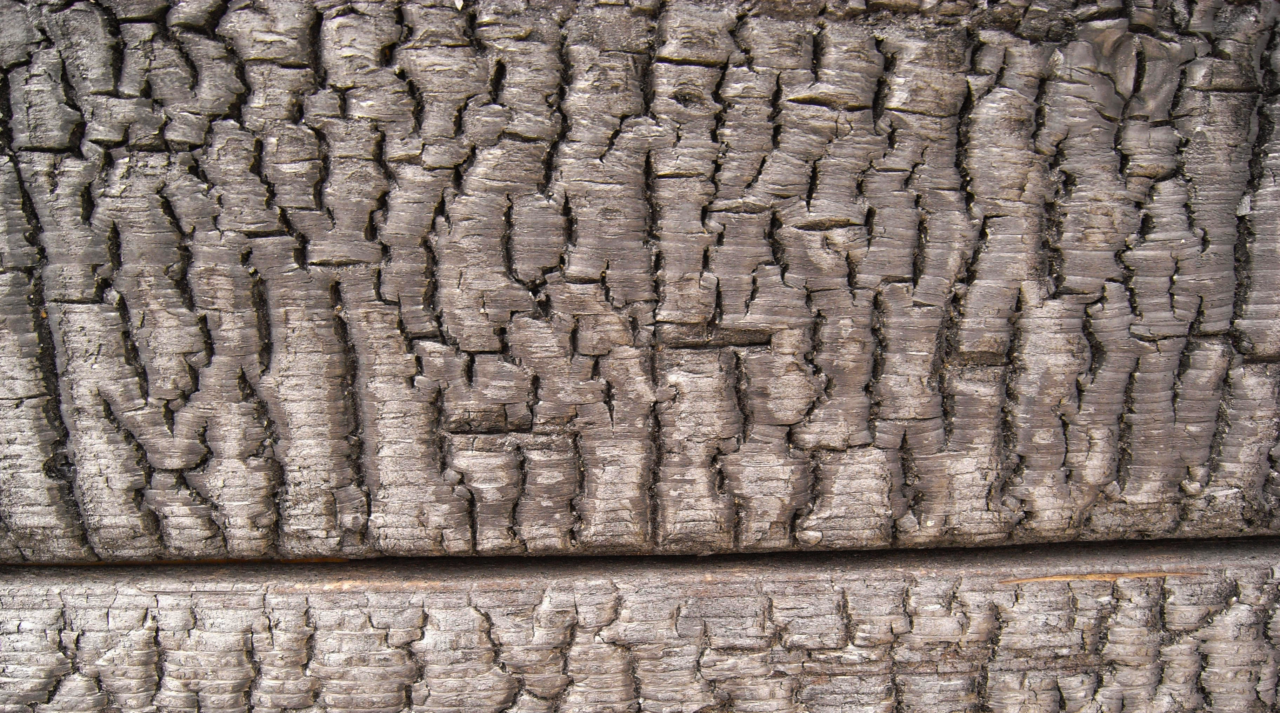 Is “Shou Sugi Ban” Suitable for Nest Boxes?
Is “Shou Sugi Ban” Suitable for Nest Boxes?With the help of NestWatcher David Alva, we went on a learning journey about the centuries-old Japanese technique of shou sugi ban to find out if it would be suitable for a birdhouse. This wood-charring method creates a weathered look that adds durability and beauty without the need for chemical treatments.
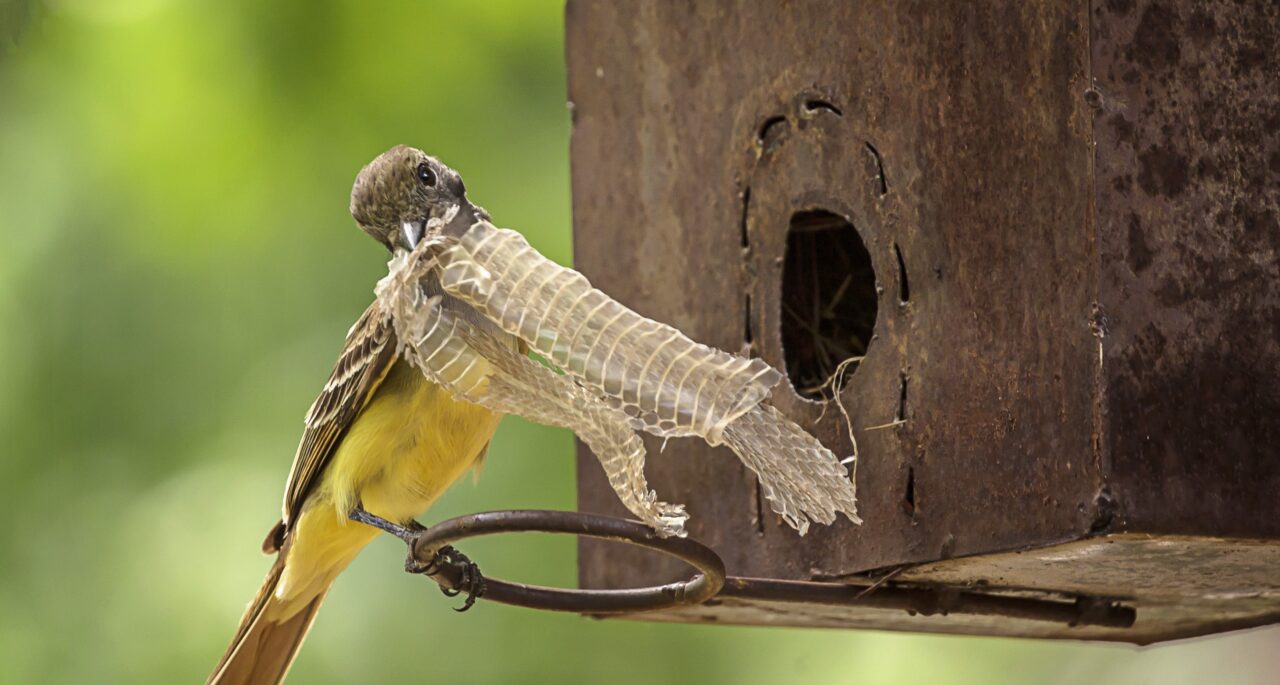 Do Birds Use Scarecrows? On the Evolution of Snake Skin as Nest Material
Do Birds Use Scarecrows? On the Evolution of Snake Skin as Nest MaterialHumans use scarecrows to scare away birds, but do birds also use scare tactics to repel predators from their nests? Our latest research suggests that they do, and NestWatchers may have even witnessed it in action. Read on to find out how birds try to frighten away ghouls from the nest.
